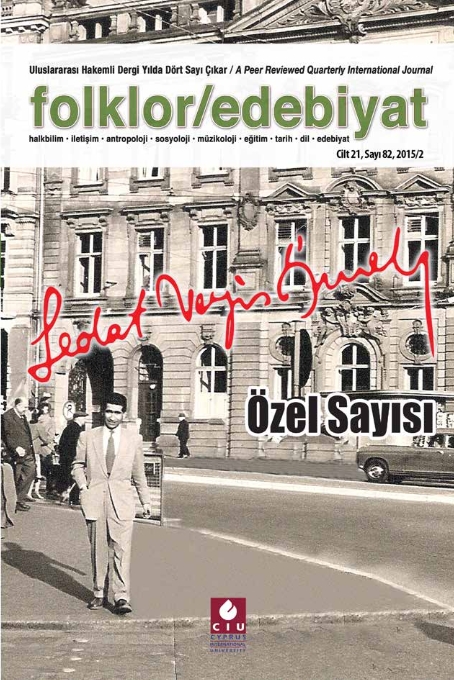Sedat Veyis Örnek’in Etnoloji Sözlüğü ve Budunbilim Terimleri Sözlüğü’ne Terminolojik Açıdan Bir Bakış
A Terminological Look At Etnoloji Sözlüğü and Budunbilim Terimleri Sözlüğü by Sedat Veyis Örnek
Author(s): Hülya UysalSubject(s): Morphology, Lexis, Semantics, Historical Linguistics, Philology, Translation Studies
Published by: Uluslararası Kıbrıs Üniversitesi
Keywords: term; terminology; Sedat Veyis Örnek; Etnoloji Sözlüğü; Budunbilim Terimleri Sözlüğü; methods to translate foreign terms into Turkish;
Summary/Abstract: Being a Turkish folklorist and scientist Sedat Veyis Örnek has studied on ethnology by adopting the principles of Turkish linguistic revolution and he has not only introduced Turkish terms to Turkish terminology but also contributed to Turcology with his scientific studies. In this article, the terms in Etnoloji Sözlüğü and Budunbilim Terimleri Sözlüğü of Sedat Veyis Örnek, who has contributed to purify foreign terms in Turkish scientific language with Turkish terms being headword in his dictionaries have been evaluated with derivational morphology and terminology. During the course of the study, the terms scanned in both of the dictionaries and the sample scanned terms were classified using the methods employed for the translation of foreign terms into Turkish. The methods which have been applied by Sedat Veyis Örnek are as follows: calque: Alm. Weisse Magie / Fr. magie blanche / İng. white magic > ak büyü; referring to derivational morphemes: Alm. Vervollstaendigung, Integration / Fr. Intégration / İng. Integration > bütünleşme; word combining: Alm. Volkskunde / Fr., İng. folklore / es.t. halkıyyat, folklor > halkbilim; referring to Turkish dialects: Alm. Regenboden / Fr. arc-en-ciel / İng. rainbow / es. t. alaimisema > alkım; referring to historical texts: Alm. Ekstase / Fr. extase / İng. ecstasy / es.t. vecde gelme > esrime. It has been concluded that lexical entry terms in the dictionaries are substantially Turkish though there are foreign terms which are derivated from Eastern and Western languages. These lexical entries indicate that Sedat Veyis Örnek has not only adopted and reflected the policy of Turkish Linguistic Revolution while translating foreign terms into Turkish but he also supported the studies conducted within the frame of this policy.
Journal: Folklor/Edebiyat
- Issue Year: 21/2015
- Issue No: 82
- Page Range: 217-230
- Page Count: 14
- Language: Turkish

